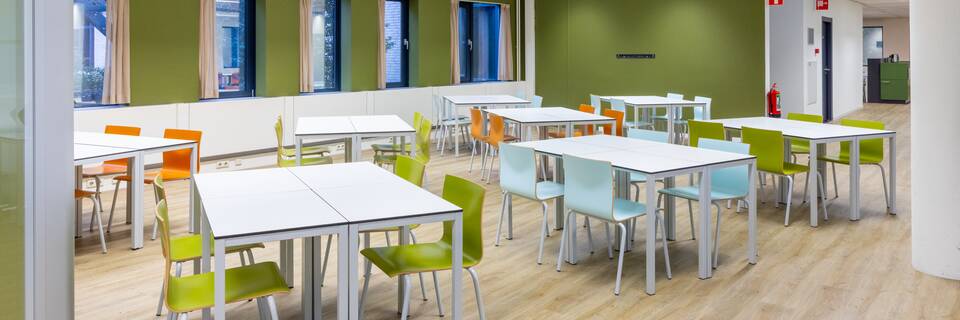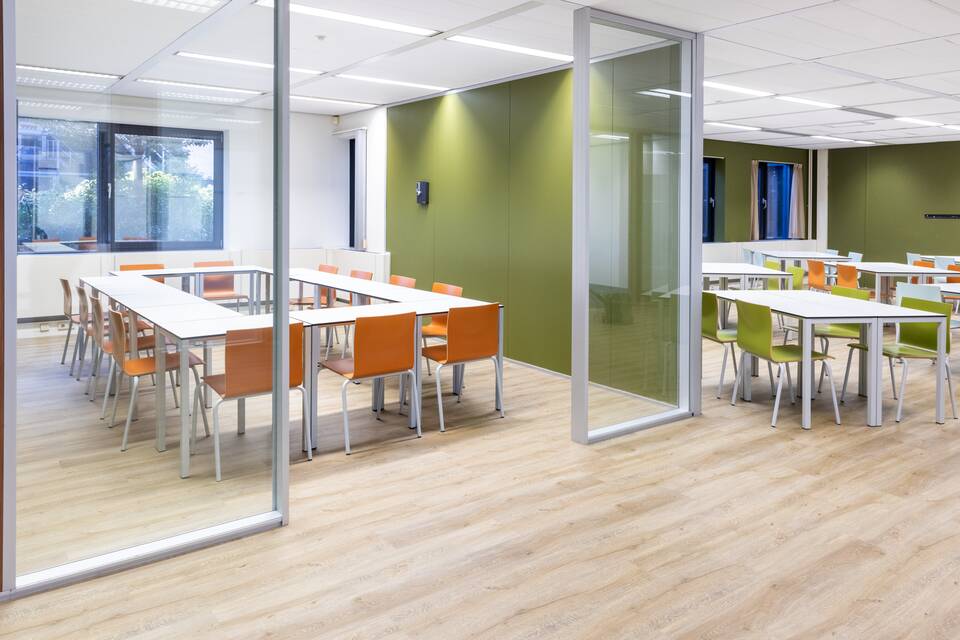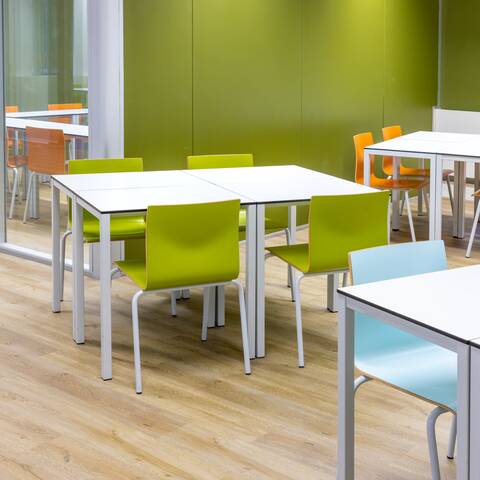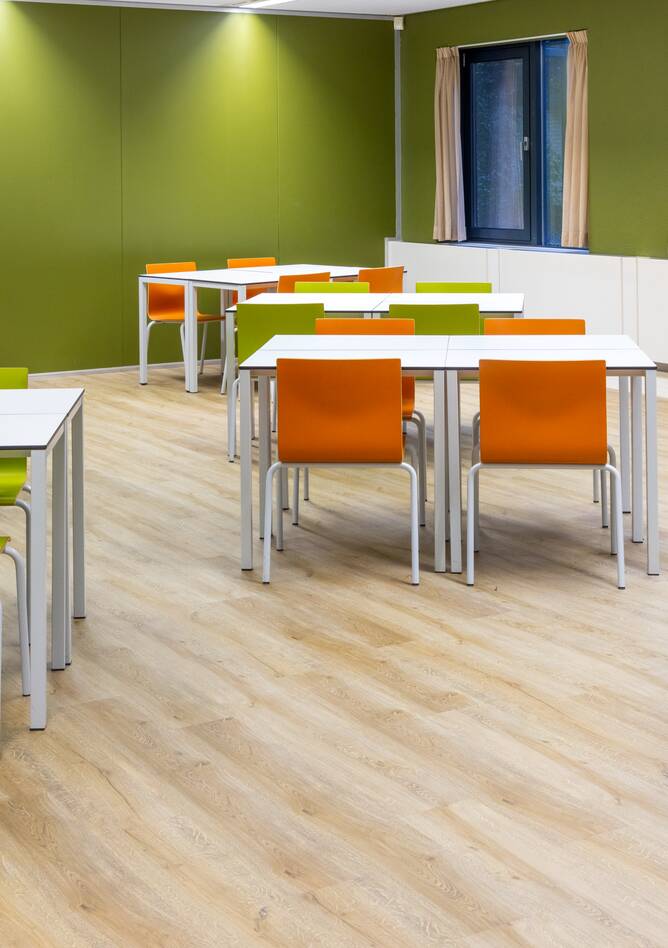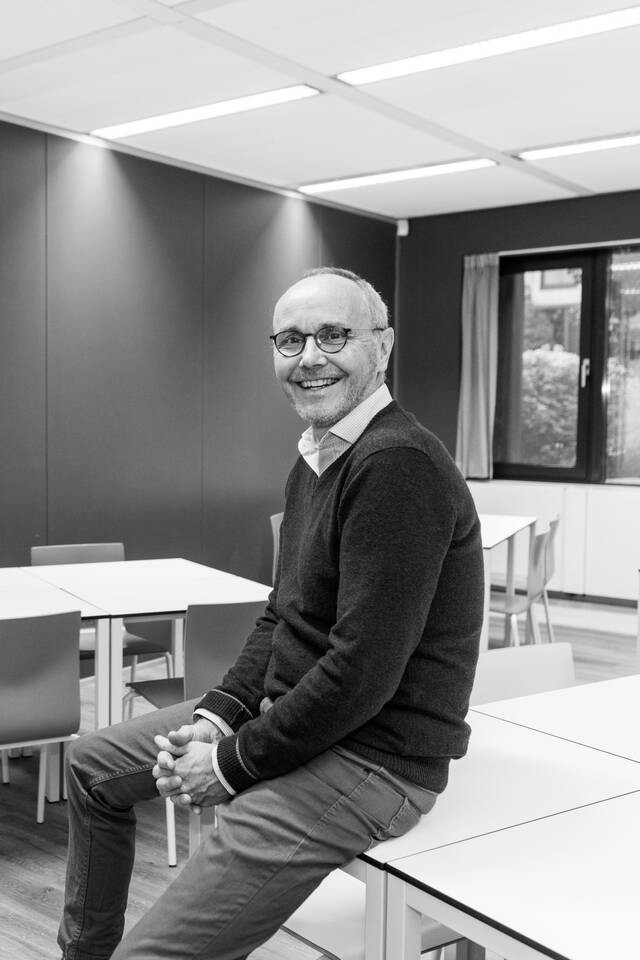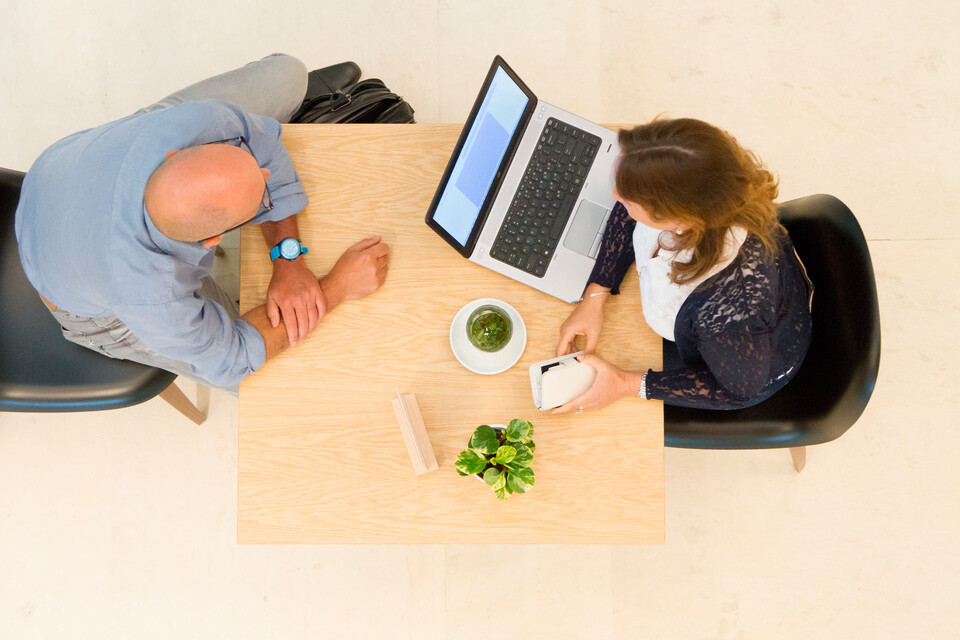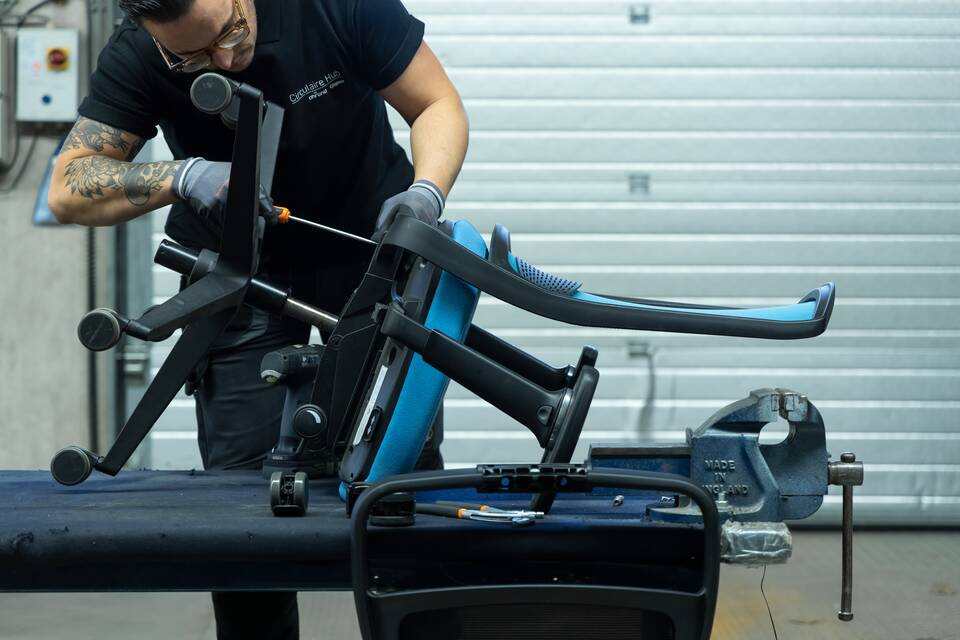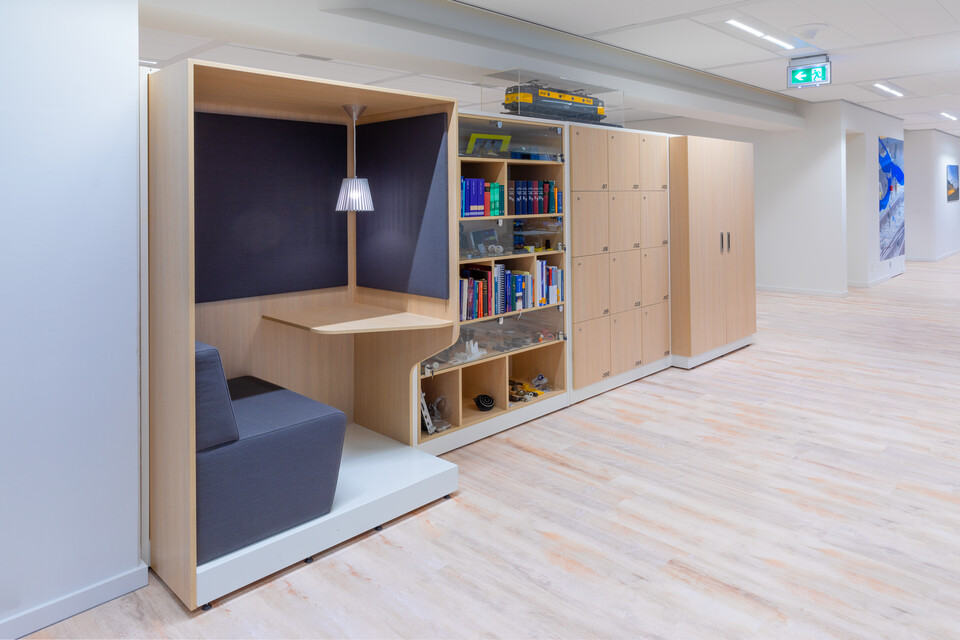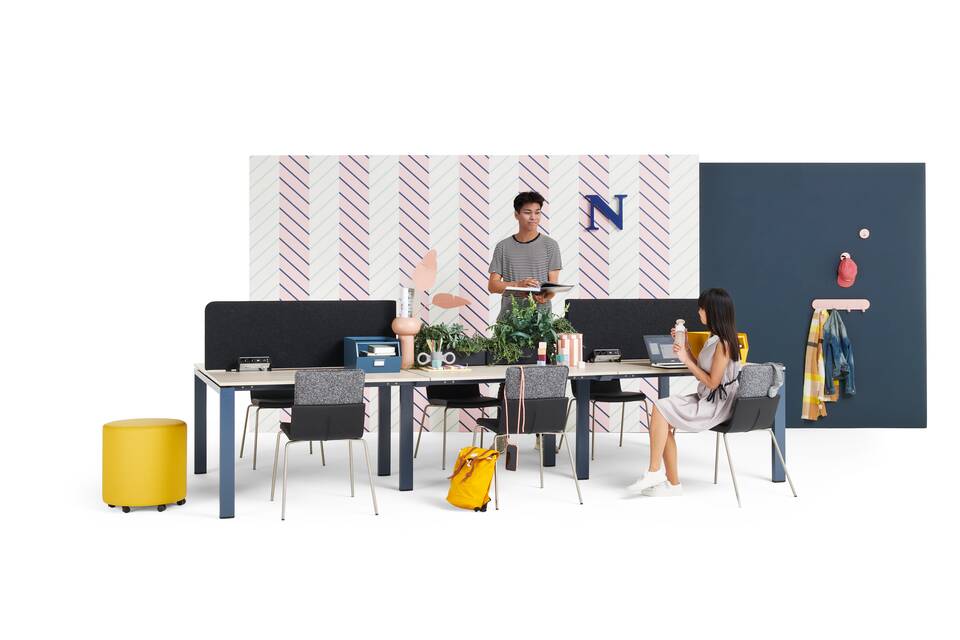Circularity as part of the strategy
The headmaster has integrated circularity as part of the strategic policy of Jordan Montessori. 'We want to contribute to a better world and make our students aware of the value and infinity of raw materials. Student-proofing is all very well, but we think our students should treat things with respect and be aware of their fragility and value. I think you can promote that by telling them where the items are from and what they are made of. When students set out to paint and furnish a room themselves, they will first look for paint leftovers and get a lamp from the thrift shop, for example. It's great to have access to Gispen's Circular Hub with people who think along with you, give advice and offer opportunities to give substance to circularity in various ways.'
Revived: a second lease of life
One of the core activities of the Circular Hub is to take used furniture and to put it back into use. Robbert de Jonge, Circular Consultant at the Circular Hub: 'The least environmentally intrusive way to supply furniture is to give used furniture a second life. We do so by refurbishing furniture through our Revived label. This includes reupholstering chairs, replacing damaged tabletops on otherwise flawless desks, and giving outdated furniture other technical or aesthetic upgrades. The furniture is given a serious upgrade: every screw, nut, mechanism and system is checked and improved where necessary. Upholstery is deep-cleaned or replaced. The result is a perfectly functioning, more durable and future-proof product that will last for years to come.’
Circular services
In addition to refurbishing used furniture, the Circular Hub also provides sustainable services. A good example is the development of a furniture management system that provides detailed insight into the condition, location and value of our clients' furniture. We use this data to carry out preventative maintenance so that the furniture is always at its highest utility. After all, proper maintenance will allow for the preservation of value.
De Jonge has noticed a shift from 'ownership' to 'usage'. Through our Furniture as a Service model, clients only pay for what they use. When an item is no longer needed, they simply return it what which the Circular Hub relocates it with another client. We want to continue developing our circular services from the Hub in order to help our clients meet the circular challenges they are facing.'
